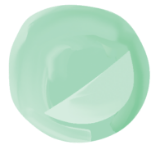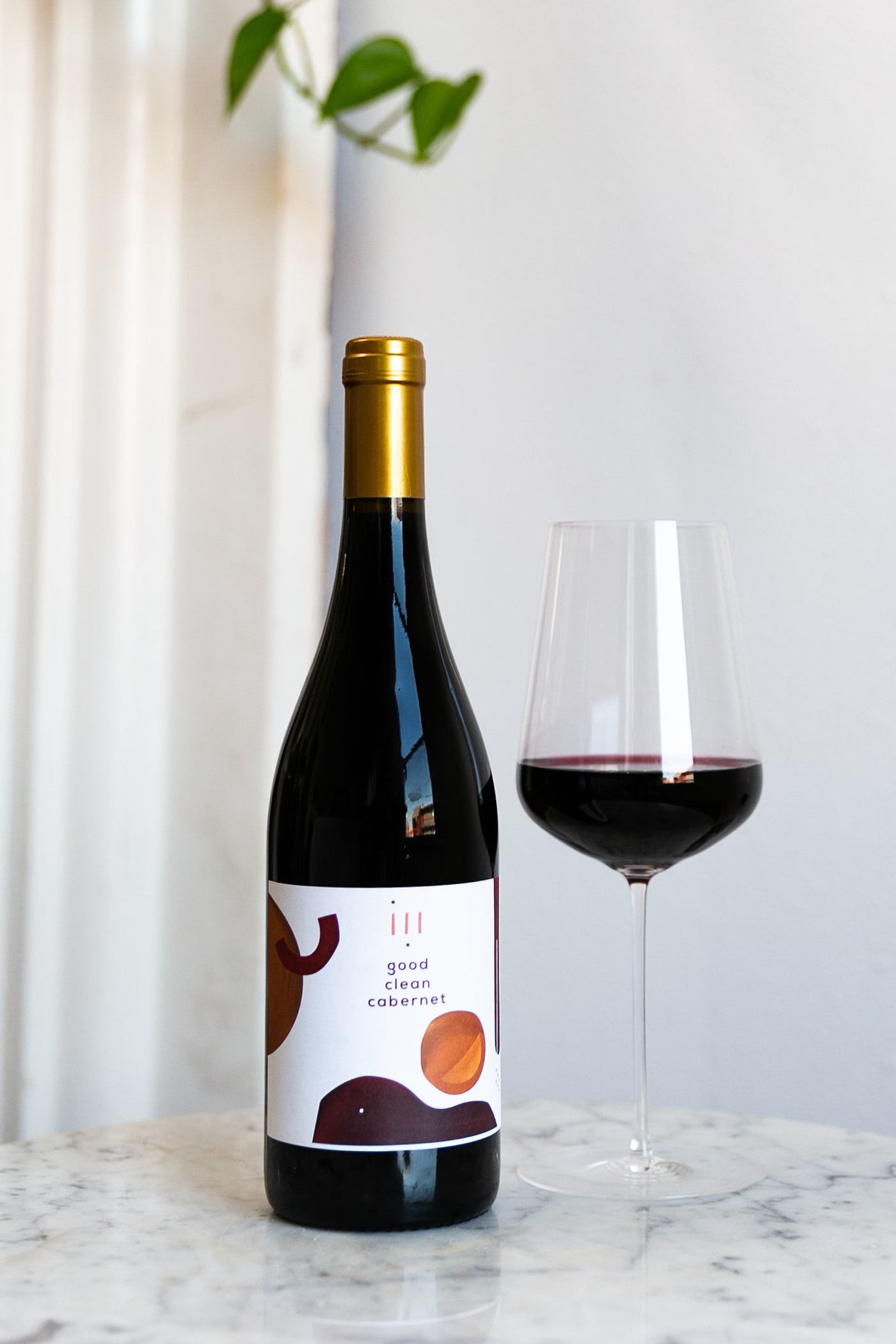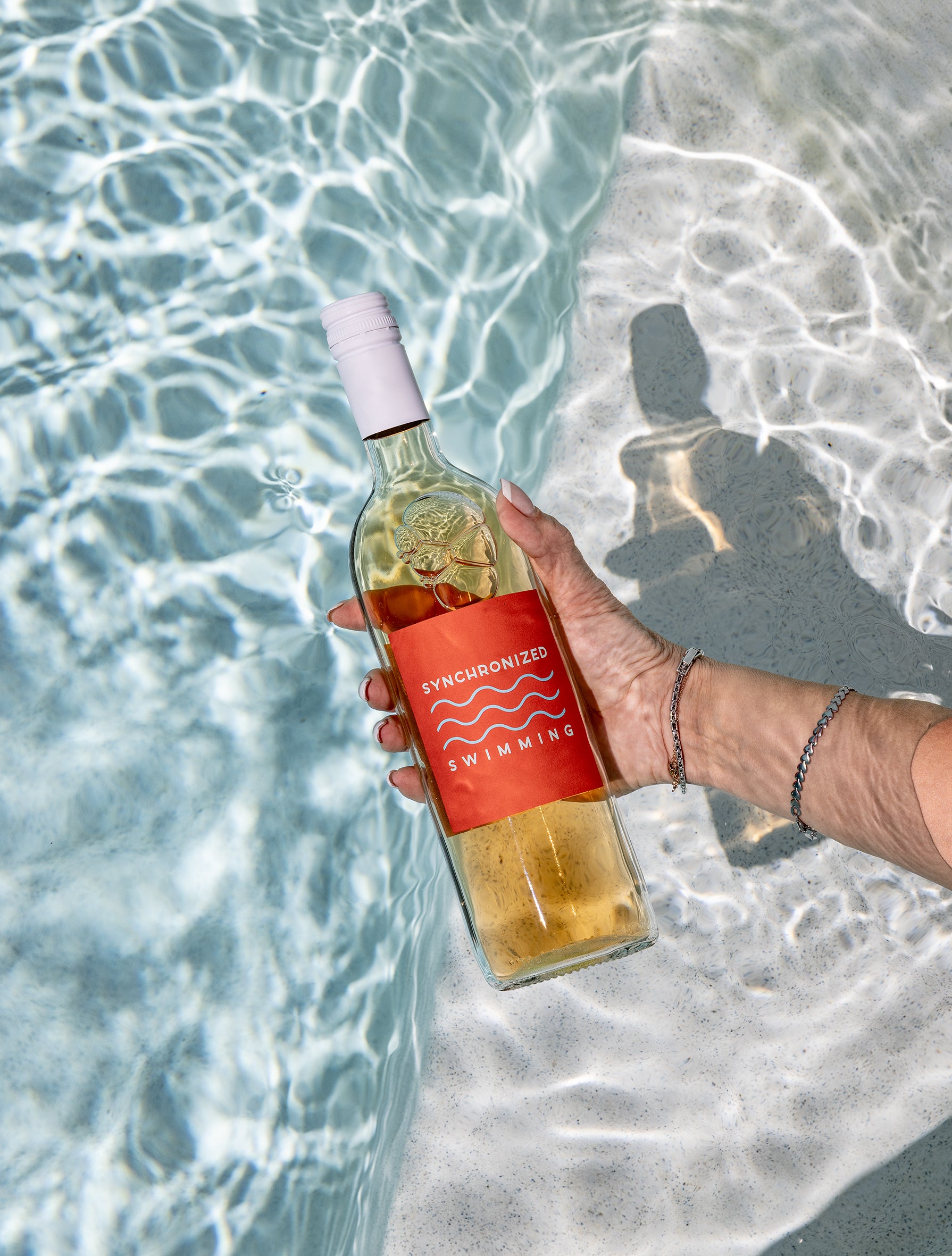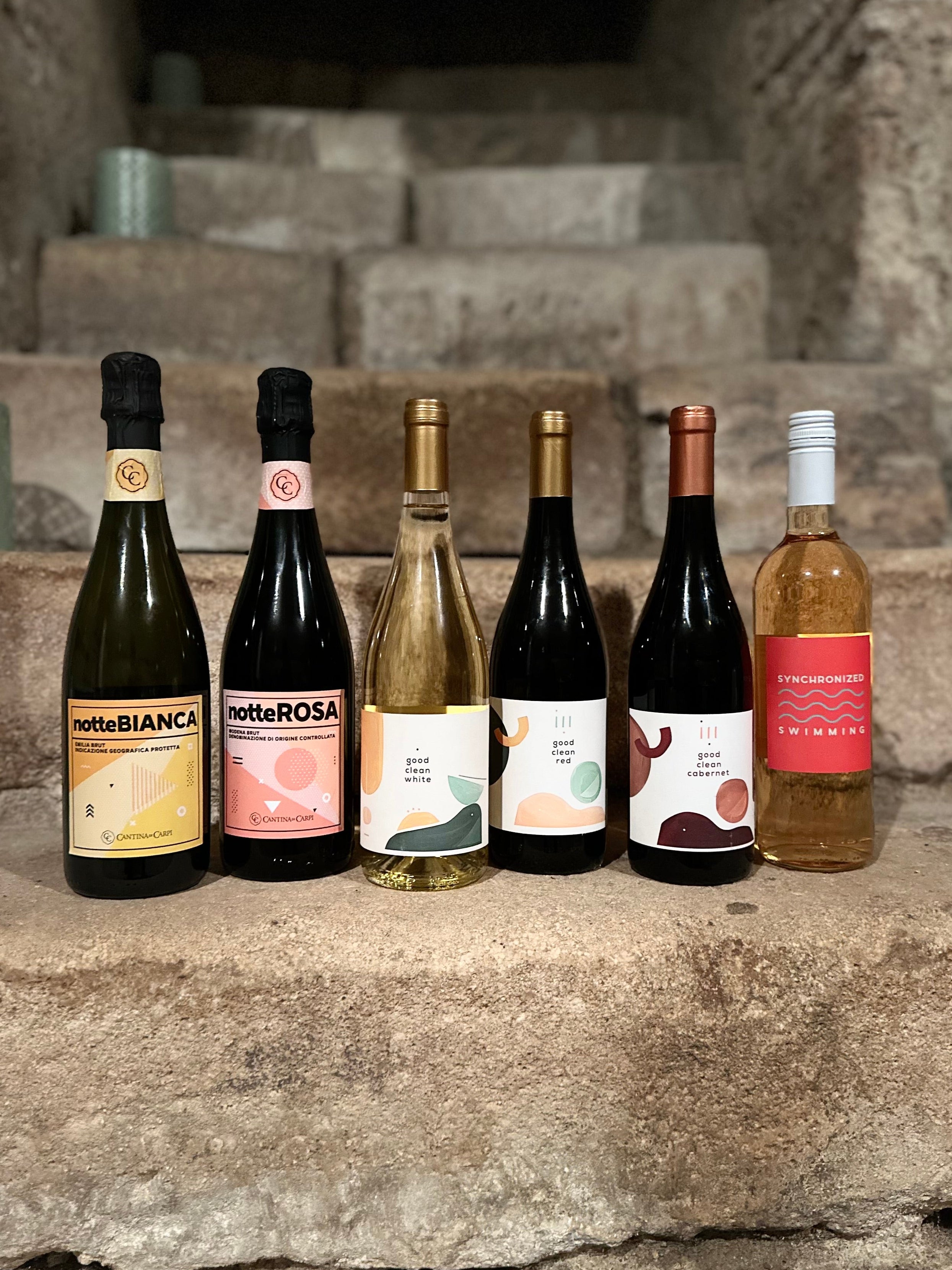
Right when we’re up to our ears in sheet masks, now there’s something called clean wine. Actually, it’s labeled Good Clean Wine, and it’s a low-intervention vino employing minimal additives and processes. But is it the real deal?
The new brand comes from Courtney Dunlop and Elle Feldman, whose backgrounds are not in grapes but in skincare. Dunlop is a former beauty, health and fitness editor who left New York City for her hometown of Springfield, Missouri to fill a need for science-backed beauty advice. Feldman, meanwhile, is an esthetician and sommelier. At their facial studio and boutique, wine is sold right alongside eye cream.
The idea for Good Clean Wine began with what Dunlop dubs “hangovers from hell.” After years of mowing down post-pinot pizza, she did some research (as any good editor would) and had an aha moment after trying low-intervention wine. “No more headaches, no more puffy eyes, no more hangovers from hell,” she explains. “I could just enjoy wine without feeling sick.” Today, Good Clean Wine’s suite of red, white and rosé is made sans dyes, extra preservatives or questionable additives like artificial oak flavoring (yes, that’s a thing).
But what exactly is clean wine? Low-intervention wine is generally fermented with ambient wild yeast and doesn’t contain additives like acid or flavor enhancers. “But that doesn’t mean that it’s just wild grapes left to ferment in a bucket,” she adds. “The act of farming is a human intervention, and there are still manipulations such as punch down or pump over in the winemaking process.” So is clean wine actually healthy? (Spoiler alert: not exactly.)
“Low-intervention wines should be healthier than conventional, with fewer pesticide and herbicide residuals in the end product and fewer allergens,” explains author Alice Feiring, who is largely considered the grand dame of natural wine. But she cautions that these wines aren’t medicine.
The duo behind Good Clean Wine agrees and wants you to know that their wine is not actually good for you. In fact, no wine is good for you. “We aren’t saying wine is healthy,” Feldman explains. “But if you’re concerned about hidden additives, our wine is for you.”
Although drinking clean wine can make you feel good, the bulk of the benefit is pretty psychological, Schlack concludes. “If you’re paying attention to it, drinking wine is an immersive, transporting experience,” she notes. “I assume drinking lower alcohol wines would be less dehydrating, thus better for your skin, but I wouldn’t say that natural wine has beauty benefits above, say, water.” So slap on a face mask, raise a glass of each and cheers to the hangover gods.




